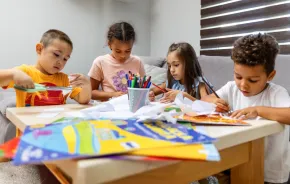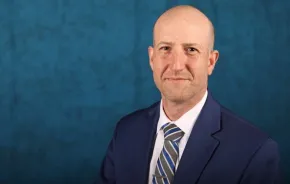
There are a few ways a kid can choose to spend summer vacation: getting a job, hitting the beach, catching up on binge-watching. But teens who are devoted to their craft — and especially those considering art school — can get a taste of their future at one of Cornish College of the Arts’ summer programs.
Unlike some arts programs that are more like summer camps, Cornish’s pre-college programs, open to students 14 years of age and up, are intense. Students spend five days a week, eight hours a day, for three to four weeks completing intensive work on their craft.
“This is a fantastic opportunity on the West Coast for people to have that high caliber program but to not have to travel as far,” says Sharron Starling, Cornish’s director of admission.
When it comes time to apply for art school, a summer intensive program can make a student stand out, adds Starling. Part of it, she says, is that colleges know you’re serious.
“The student took the time and gave up four or five weeks in the summer to really devote to their art-making,” Starling explains. “It shows us that they’re very serious and they were desiring that in-depth approach and knowledge.
“I think if you’re really serious about this pathway, this is a great practice run,” she continues. “Even just committing to that workload in the summer [shows that] students are choosing to do this extra work.”
But there’s also a practical reason to choose a college prep course, besides just figuring out if art school is the right fit. Graduates of Cornish’s summer program leave with the practical tools they need to move onto art school.
The bottom line: A summer program can prepare students to enter the real world as an artist.
Students leave with resumes, theater headshots, artist statements, audition-appropriate monologues — skills they might otherwise have to figure out on their own. “That’s one of the things we’re spending time on in our studio — not just the studio time but getting ready for the college application process,” says Starling.
Even for students considering traditional college, it’s valuable to get that hands-on experience sooner rather than later. “You still have to show a portfolio, you still want to have your best work,” Starling says.
The bottom line: A summer program can prepare students to enter the real world as an artist.
“It was a wonderful, immersive experience that opened the gates to a big, scary world of making real music that real people are gonna judge you for,” says Stefan Tabit, who took the “Music for Film, Games and TV” program in 2017 and currently studies music at Cornish full-time. “It's tremendous and overwhelming and terrifying and wildly exciting all at the same time.”
Zachary Chandler, also a current Cornish student, completed the musical theater summer program at Cornish in August 2017. It clarified his path forward. “It made me more clear about where I want to go and what I want to study,” said Chandler. “That also lead me to what I want to do for the future which is musical theatre and the arts.”
Both students said they spent the majority of their time honing their craft. “There wasn't any messing around,” says Tabit. “You get a scene or a selection, and [the instructor] tells you to write some music for it. You get a few hours, maybe two days, and then it's due and the whole class listens to it.”
The end result, says Tabit, is high quality work that doesn’t just fit a rubric.
“The thing you should really take going into the program is that it's not high school, and the goal isn't an A,” Tabit says. “The only thing you'll get from a summer class is what you learn, so you have to come to class every day ready to do a lot and learn a lot.”
Because it’s reflective of the real-life artist hustle, the programs are hard work. And that’s by design.
“We’re probably going to stretch and grow and try some new things [in the program],” says Starling. “Maybe you’ll be a little uncomfortable because you’re going to be doing things that are hard for you. But that’s how you get better.”
But it’s worth it, says Chandler: “Just go out there and do what you love to do. If you have even the slightest impulse on doing something then just do it and you won’t regret it.”
Editor's note: This article was sponsored by Cornish College of the Arts.












